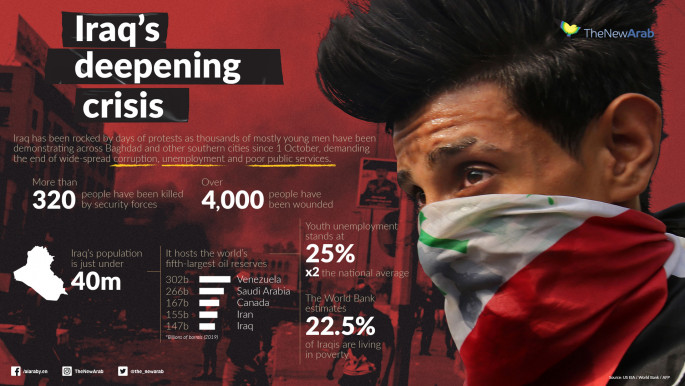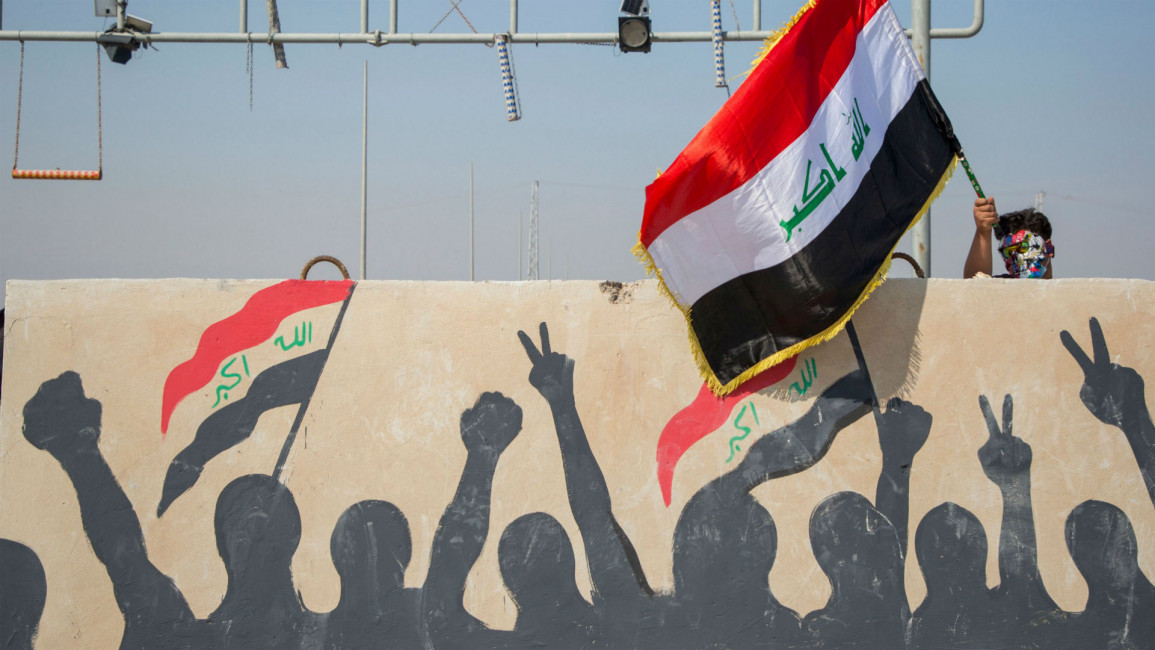Activists block Iraq's main port, as protests hit southern cities
Iraq protesters blocked entry to the country's main commodities port on Monday, as demonstrations escalated in southern cities.
Hundreds stopped employees and tankers from entering the Umm Qasr port near Basra, halting operations in half on Monday, according to port sources who warned a continuation of the protest would bring operations to complete end.
“Our protests in Umm Qasr are in solidarity with our brothers in Tahrir Square and other provinces," said protester Karim Jawad, referring to the main protest site in Baghdad, Reuters reported.
Iraqi authorities wrested control of the key port of Umm Qasr earlier this month, allowing for operations to resume after they were halted for nearly ten days after demonstrators blocked its entrances.
The closure cost the country more than $6 billion, a government source said at the time. Two people were killed and at least 20 wounded as security forces opened fire on crowds near the port during the first incident.
Umm Qasr serves as Iraq’s main Gulf port which receives essential commodities such as grain, vegetable oils and sugar shipments.
Meanwhile, several Shia-predominant cities in the south of the country, including Karbala, Hilla, Diwaniyah maintained a general strike on Monday after a decision by the teachers union and local trade chamber.
Protest camps in the city centres remained vibrant with demonstrators continuing weeks-long calls for reform.
In Baghdad, labour unions marched to central Tahrir Square to join thousands of protesters who have been camped out there since 24 October, Reuters reported.
The protests erupted last month over widespread corruption, lack of job opportunities and poor basic services despite the country's oil wealth.
Iraq's security forces intensified their crackdown on dissent last week amid reports of an agreement between political factions to crush the protests and shore up the rule of Prime Minister Adel Abdul Mahdi.
 |
At least 320 people have been killed and thousands wounded since the unrest in the capital and southern provinces began on 1 October.
Amnesty International has slammed the security forces for their alleged use of military-grade tear gas grenades at close range.
Protesters in Iraq seized control of a third strategic Baghdad bridge on Sunday, while others blocked roads with burning tires in parts of central and southern Iraq, halting traffic amid a widespread general strike.
Demonstrators retook control of half of Ahrar Bridge, which leads to the other side of the Tigris River near the heavily fortified Green Zone, the seat of Iraq's government.
Security forces deployed on the other side of the bridge and erected concrete barriers to keep protesters from pushing into the area.
The bridge was the third retaken by protesters in recent days, after seizing part of Sinak Bridge and central Khilani Square the previous day following fierce clashes.
They were also present in Jumhouriyya Bridge adjacent to Tahrir Square, the epicenter of the protest movement.
Bridges leading toward the Green Zone have been frequent flashpoints in the protests.
Protesters had taken control of these bridges earlier this month but were later repelled when security forces launched their deadly crackdown.
Security forces withdrew from Khilani Square after firing live ammunition and tear gas against protesters trying to tear down a concrete barrier blocking entry to the square.



